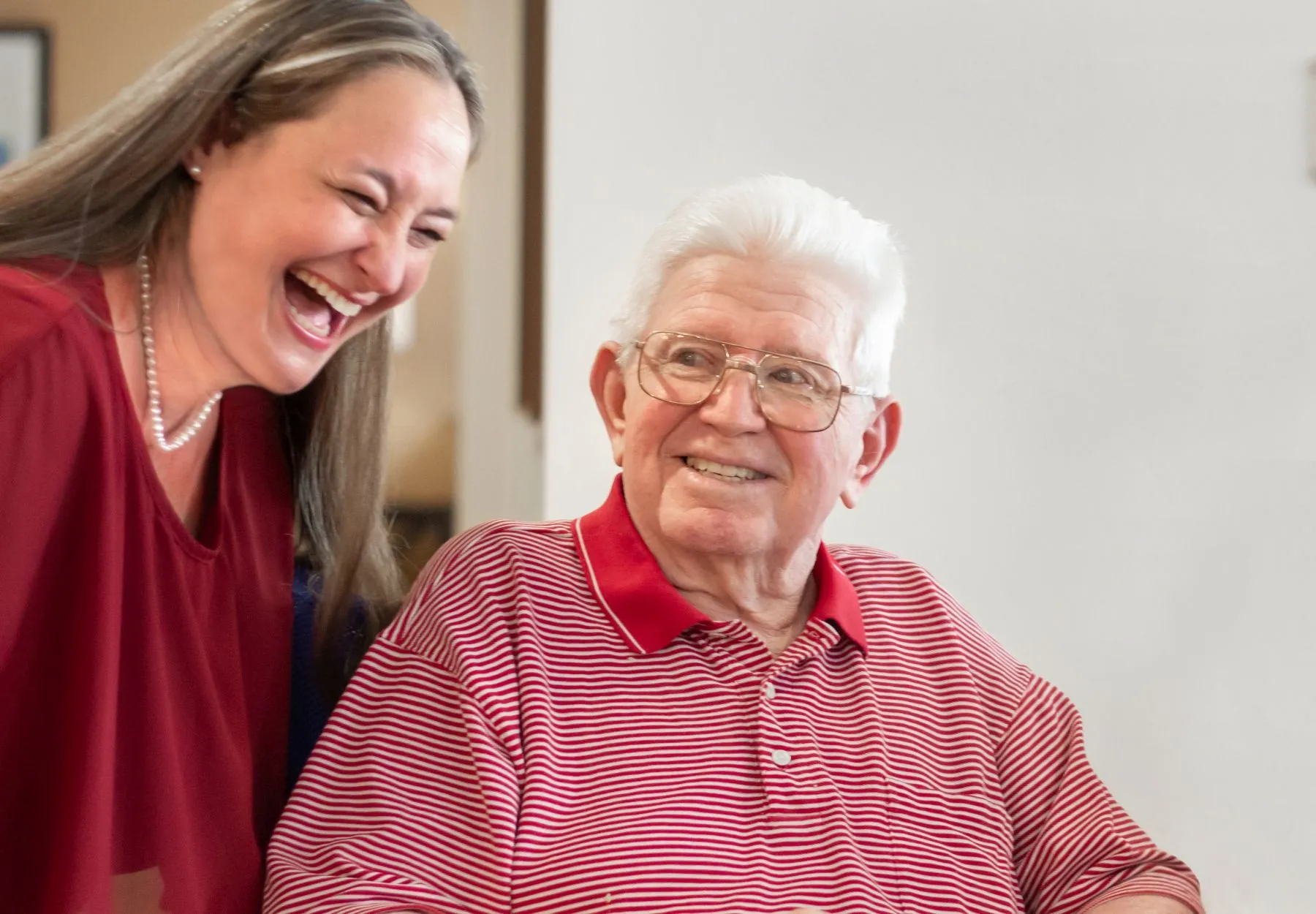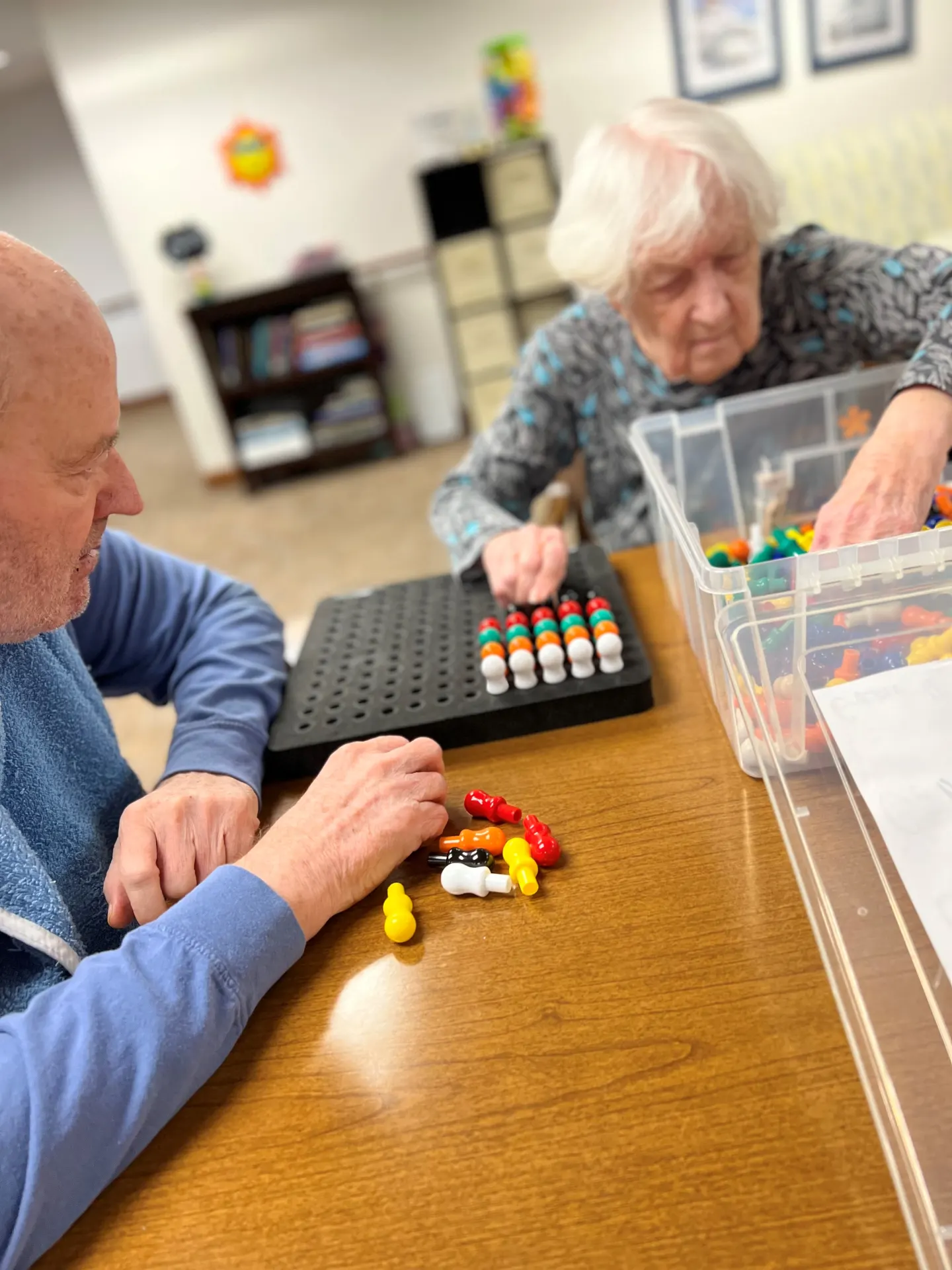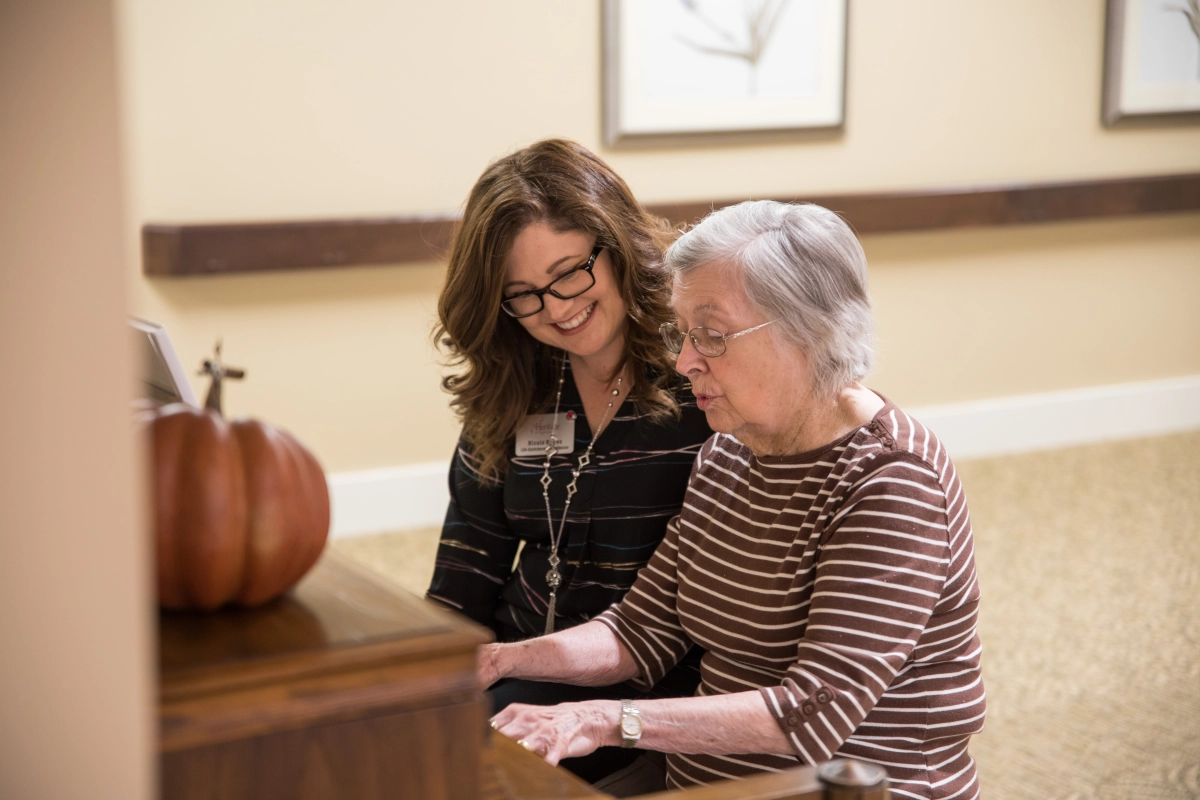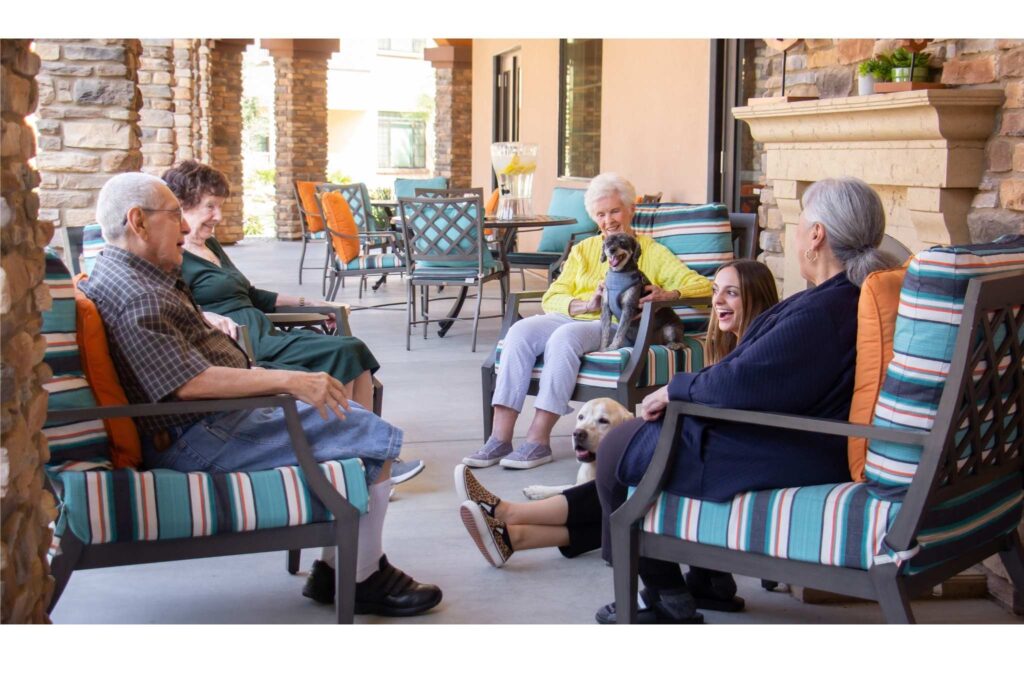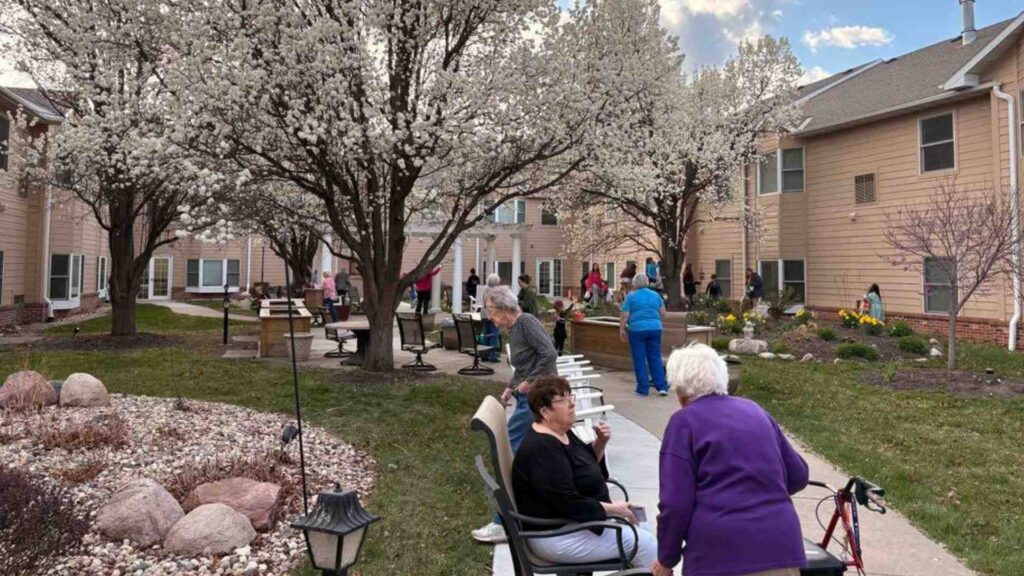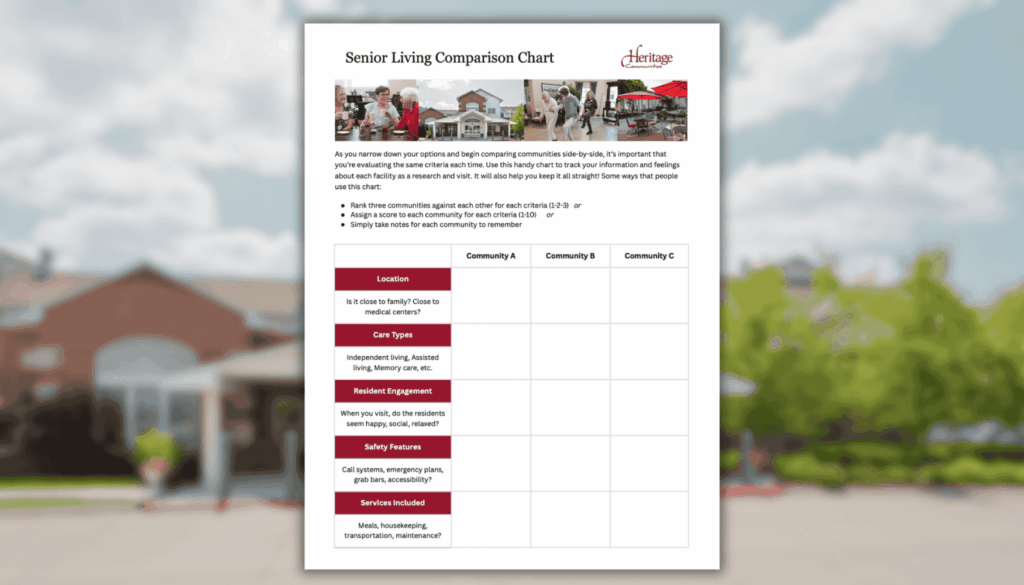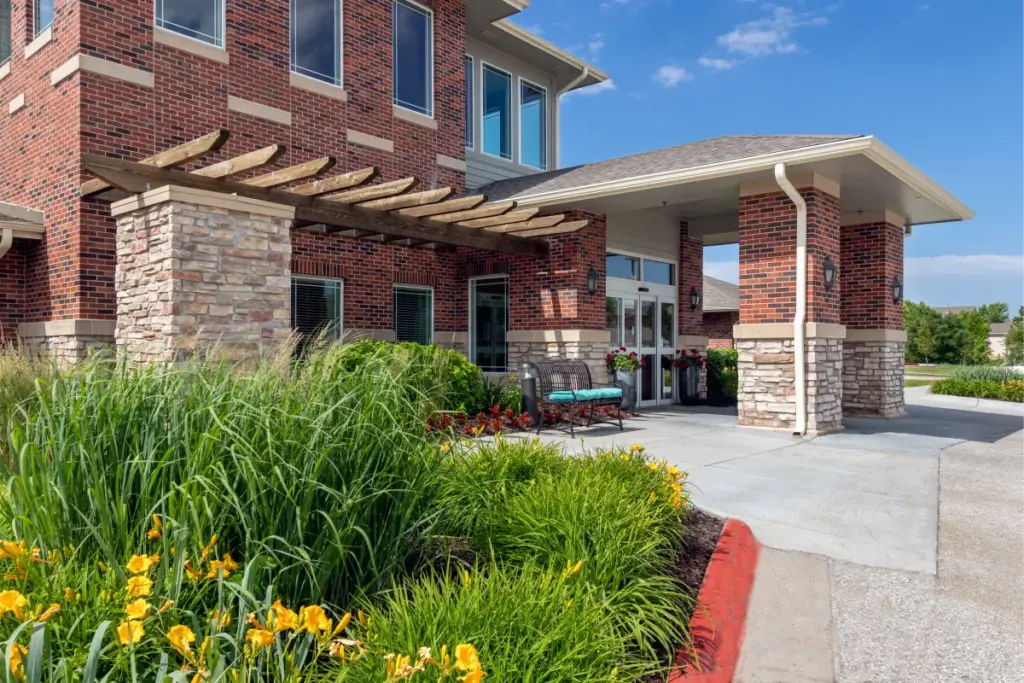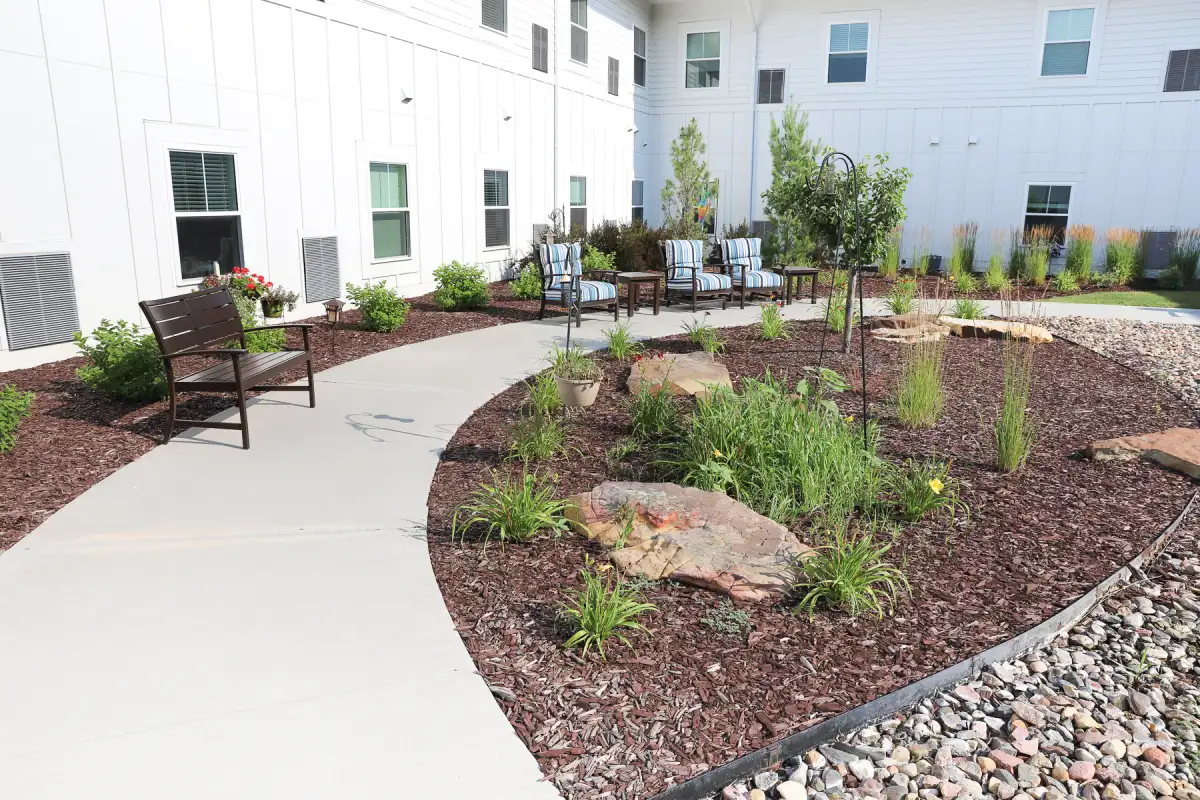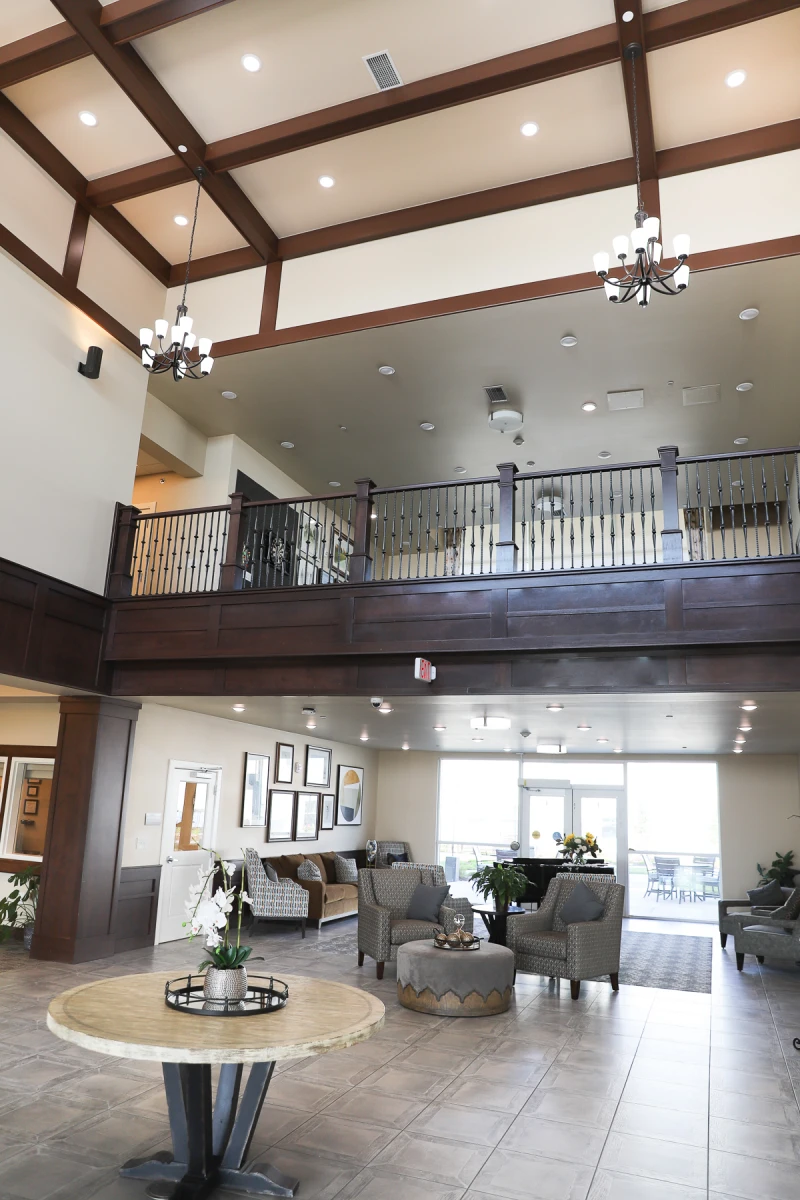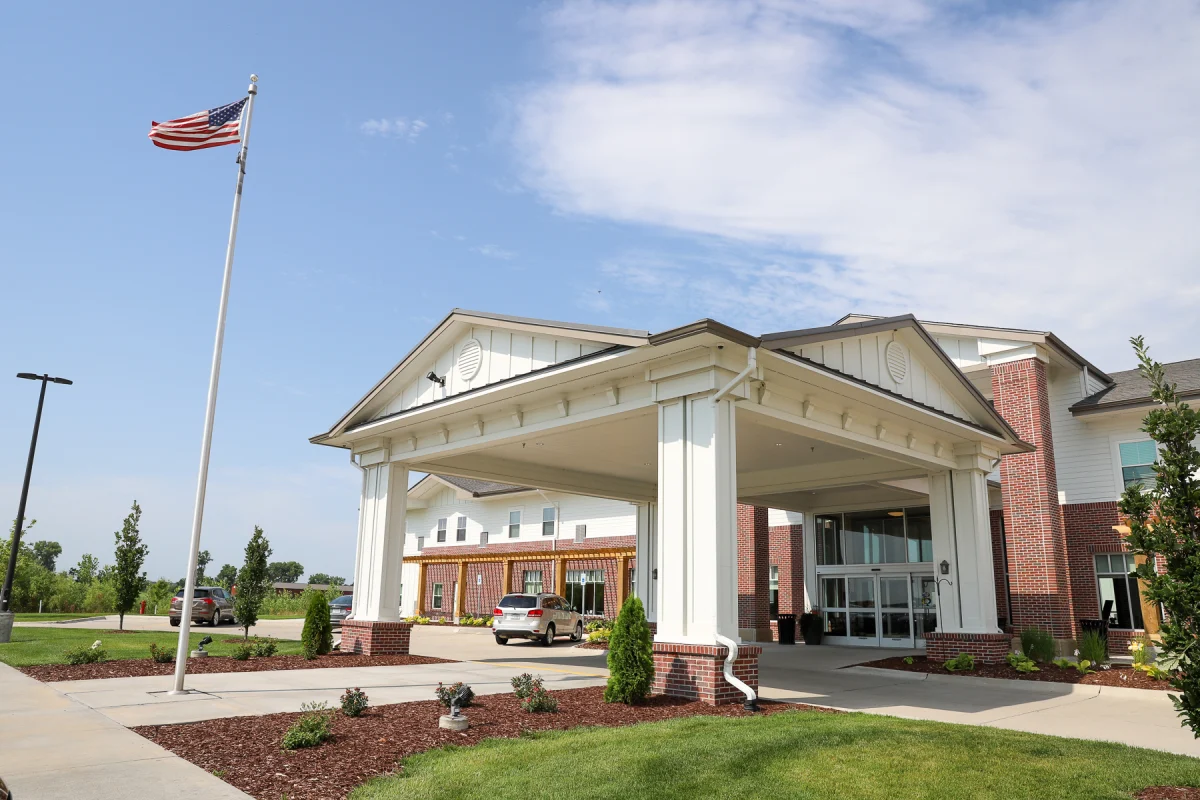Memory Care at The Heritage at Fountain Point
Explore Memory Care at The Heritage at Fountain Point
The Heritage at Fountain Point provides personalized memory support for seniors with Alzheimer’s disease and other forms of dementia following a very positive, engaging approach to maximize your loved one’s engagement, sense of purpose, and self-worth. Your loved one will find our thoughtfully designed secure community’s open layout easy to navigate with all apartments surrounding the common areas. We also have a secure courtyard so your loved one can safely enjoy the fresh air and even help care for the garden.
The Heritage at Fountain Point is owned and operated by Nebraska-based Heritage Communities. Heritage Communities takes great pride in our communities, investing in their upkeep and in the development of our associates. We believe you will see and feel the Heritage Difference when you visit our community.


What To Expect With The Heritage at Fountain Point Memory Care
At The Heritage at Fountain Point, we are deeply committed to every memory care resident’s comfort, happiness, and overall wellness. Our dedicated caregivers, available 24/7 on-site, approach their work with a foundation of trust, respect, and fun while delivering high-quality care. With our Montessori-method-based care, we encourage your loved one’s active involvement, decision-making, and problem-solving, embracing and celebrating their unique abilities.
We also hold a weekly Spotlight meeting, during which each department discusses changes in our residents, so you can have peace of mind knowing your loved one has eyes on them at all times. If we observe any changes, we make it a priority to inform the family members right away.
Moving into memory care can be an emotional time, but we are here to support you and your loved one through every step of the process. The team members at The Heritage at Fountain Point will do all we can to help your loved ones feel at home and help you to understand dementia and how to support your loved one. We take the time to get to know our residents and their families, understand their needs and prioritize meaningful conversations. Plus, our range of engaging activities, events, crafts, and games promotes socializing between residents and celebrates their skills in a positive atmosphere. Our team is here to help you with this transition. This article might also provide some helpful insights.
Personalized Memory Care Services
Portraits®
When your loved one becomes a part of The Heritage at Fountain Point senior living community, our dedicated team takes the time to understand and celebrate their unique qualities. Through our Portraits® program, we build routines and responsibilities to align with their life story, interests, aspirations, and abilities, ensuring they stay connected with their past. This gives residents purpose in their day to help them find a way to have meaning and joy while reducing frustration. Regardless of the passion, our memory care program honors residents’ personal interests, keeping them connected to the activities they love.
Watch our informative video to learn more about our unique person-centered memory care Portraits® program at The Heritage at Fountain Point and how it brings new meaning to the lives of our residents.
This is living better with specialized care.
If someone you love is living with Alzheimer’s disease or another form of age-related dementia, we can help. Our specialized approach to Memory Care will help your loved one feel more like themselves – happier, more engaged and appreciated.
- Programming focused on abilities, not disabilities
- Certified and attentive support staff on site 24/7 and trained in accordance with the guidelines of the Alzheimer’s Association®
- Help with all activities of daily living: medication management, bathing, dressing, grooming, ongoing orientation and guidance
- Comfortable private or companion suites starting at $5,300/month
- Respect for individual histories and preferences
- Meals and snacks as desired
- Culture that fosters moments of fun
- Lifestyle of engagement – social, physical and spiritual
- Safe and secure environment
How Can We Help?
Fill out the form and we’ll get back to you shortly.

Family Involvement and Support
Navigating the transition of a loved one into memory care while facing the challenges of dementia and Alzheimer’s disease is tough and emotional. At The Heritage at Fountain Point, we provide a comforting environment with support groups, creating a safe space for families seeking additional support. Heritage Communities’ dementia experts periodically provide training and education opportunities for family members, and you’ll find resources available here on our site and through our newsletter.
Speak to Our TeamComprehensive Care
At The Heritage at Fountain Point in Norfolk, we take the time to create personalized care plans that truly reflect each resident’s unique needs. Whether it’s helping with daily routines like hygiene, dressing, meals, and managing medications or offering a steady hand with mobility, our goal is to provide the thoughtful care and attention every resident deserves.
Our community is a safe and welcoming place where residents can feel secure and comfortable. We focus on engaging and uplifting our memory care residents with daily activities that bring joy and meaningful connection to their lives. Our memory support services include:
- Accessible and attentive support team on-site 24/7
- Engaging, multisensory activities
- Secure memory care outdoor courtyard
- Housekeeping and laundry
- Meals and snacks as desired
- Personalized care, including medication management, bathing, dressing, grooming, cuing, and reminders
- Planned and spontaneous activities
- Transportation
Learn how we amplify resident safety with Artificial Intelligence.
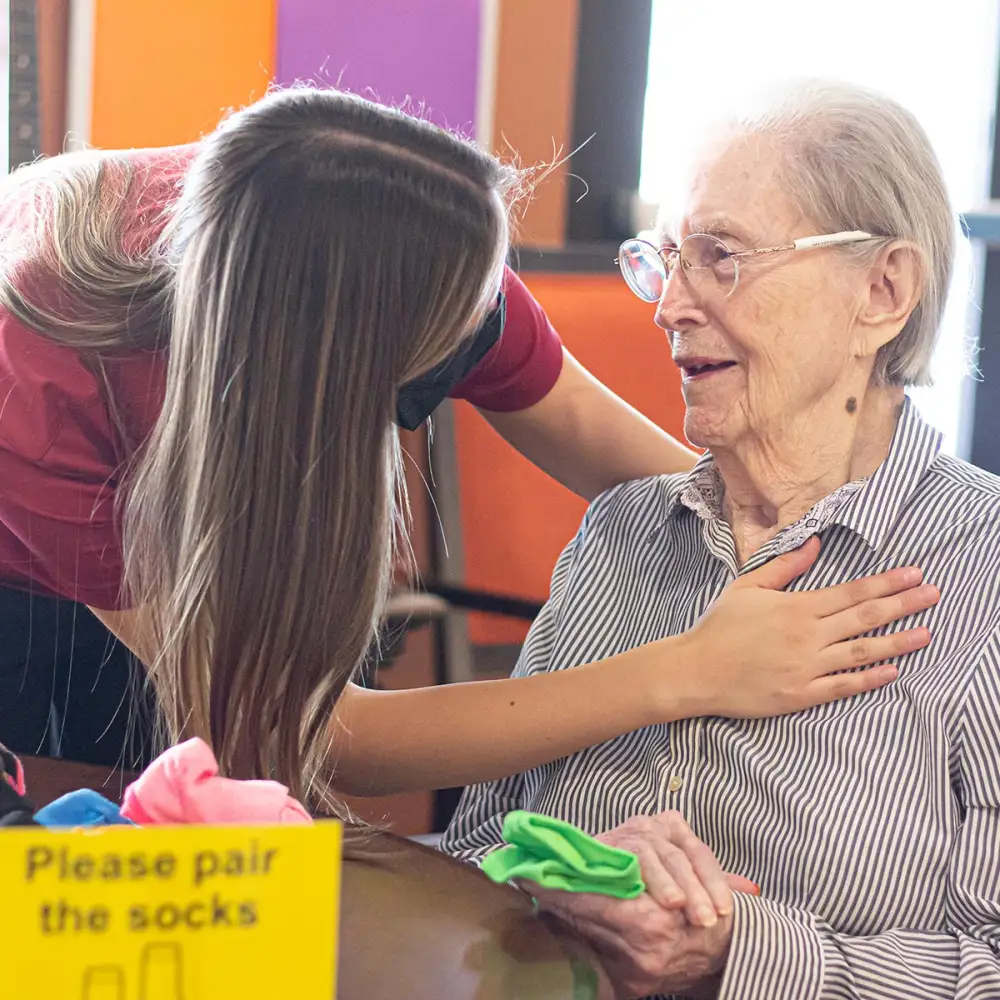
Activities and Events at The Heritage at Fountain Point
We are dedicated to providing various daily, weekly, and monthly activities that cater to the diverse needs of our residents and their families. Our goal is to create enriching experiences that fit into our residents’ schedules and allow them to participate in activities that bring joy to their lives. Whether it’s exercise classes or inclusive events for the whole family, we strive to offer opportunities that truly allow our residents to Live Better.
Our memory care residents have incredible activities, including engaging group games like rhyme time and name that state and religious services in our brand new, peaceful chapel. Our activities, like Jenga, horseshoes, courtyard lemonade, and ice cream sundaes with family, foster social connections and provide stimulating experiences in our close-knit community.
Activities and EventsMemory Care Floor Plans, Features, and Amenities
The Heritage at Fountain Point offers three memory care floor plans from which to choose. Our secure, pet-friendly apartment homes are designed with comfort and accessibility in mind. Each home offers spacious living areas, plenty of natural light, and secure, easy-to-access bathrooms to ensure your loved one’s well-being.
Our memory care apartment homes and community also include these amenities:
- High-speed wireless internet
- Cable television
- Window treatments
- Inclusive utilities
- Armoire
- Secure outdoor courtyard
Starting at $5,300/month
Companion Suite
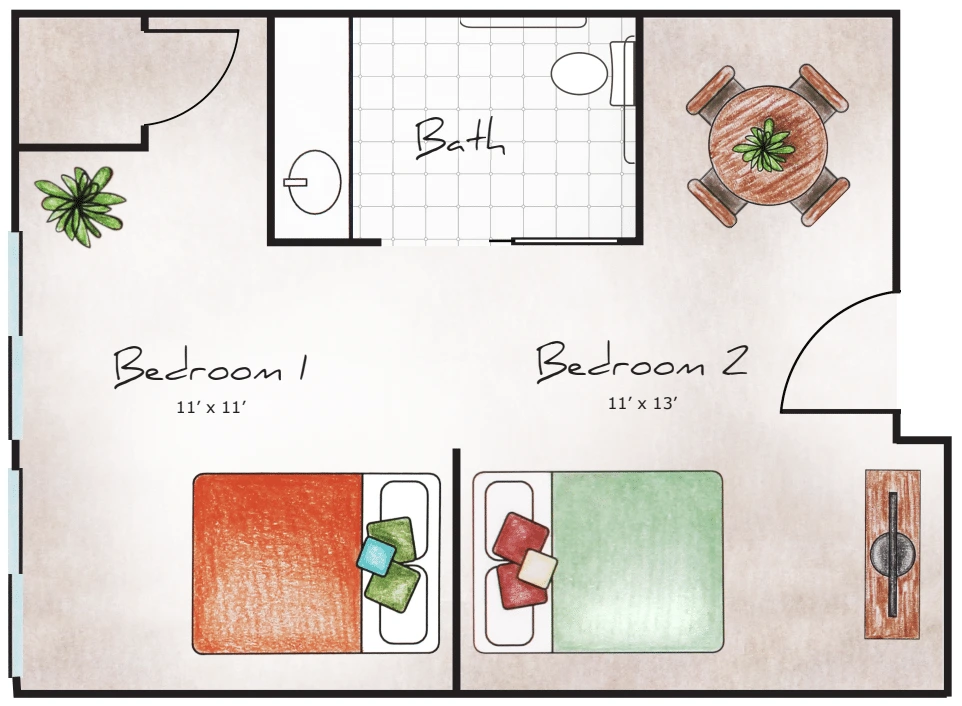
Private Suite
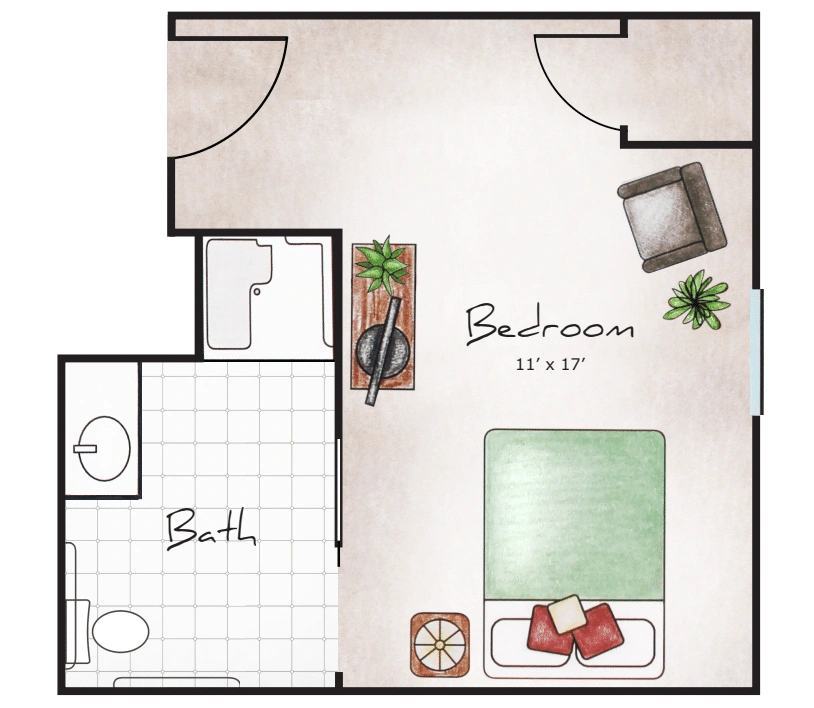
Private Deluxe
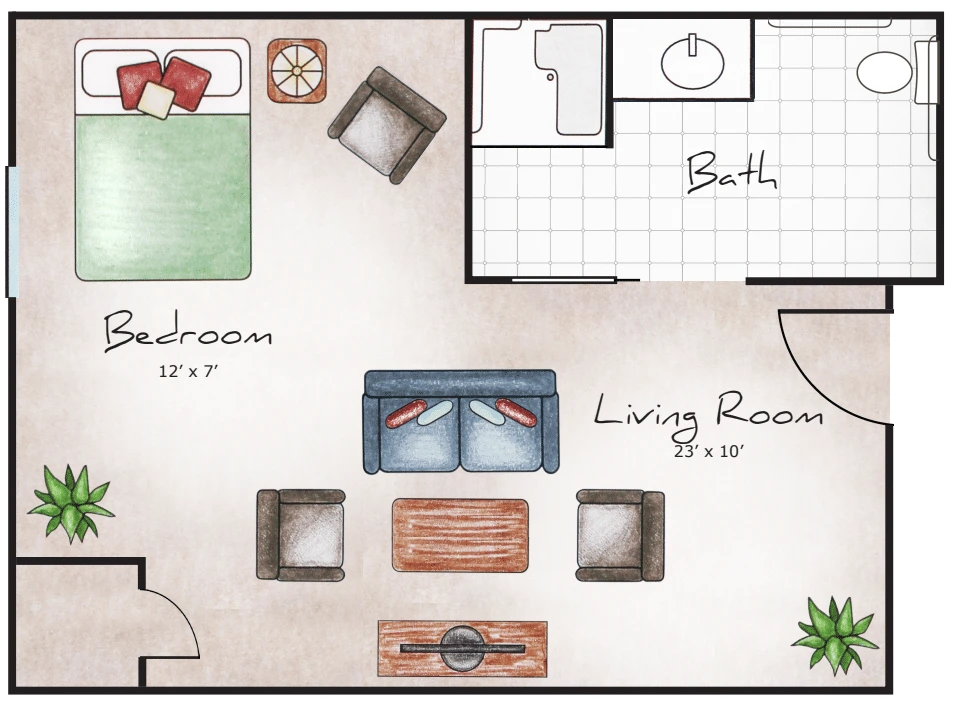
Other Living Options at The Heritage at Fountain Point
At The Heritage at Fountain Point in Norfolk, NE, we warmly welcome you and your family into our close-knit community. Along with specialized memory care, we offer a variety of senior living choices, such as assisted living and respite care, to ensure you or your loved one receives the utmost personalized care to truly Live Better!
Schedule a tour of our warm and inviting community in Norfolk, NE, and discover Living Better with The Heritage at Fountain Point. Call us today to learn how we can help you achieve this!
Check out our other Heritage Communities in the area for additional options, explore articles on our blog for valuable insights, or visit our FAQ page for answers to your senior living questions.
What Our Residents Say
“The facility is beautiful. The really nice thing is that my father has a full size bed in his room and not a twin. Not only is the facility beautiful but the people I have dealt with have been WONDERFUL! Jennifer Berg is amazing…she is extremely helpful and quick to respond to any questions I might have regarding my father’s care. Maria in memory Care was also extremely helpful. Feels good knowing my father is in great hands! What a blessing!”
– Denise P, June 6, 2022
The Heritage at Fountain Point
Virtual Tour

Have a specific question?
Give us a call at (402) 253-0850 or Contact Us
Living Options at The Heritage at Fountain Point
Communities Near The Heritage at Fountain Point
Amenities at The Heritage at Fountain Point
- Outdoor Courtyard
- Small pets welcome
- Salon/Barber shop
- Exercise facilities
- Movie Theater
Services at The Heritage at Fountain Point
- Bathing/showering
- Food preparation and meal delivery
- Mobility assistance
- Coordination of care supplies
- Pet care

